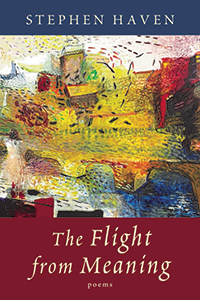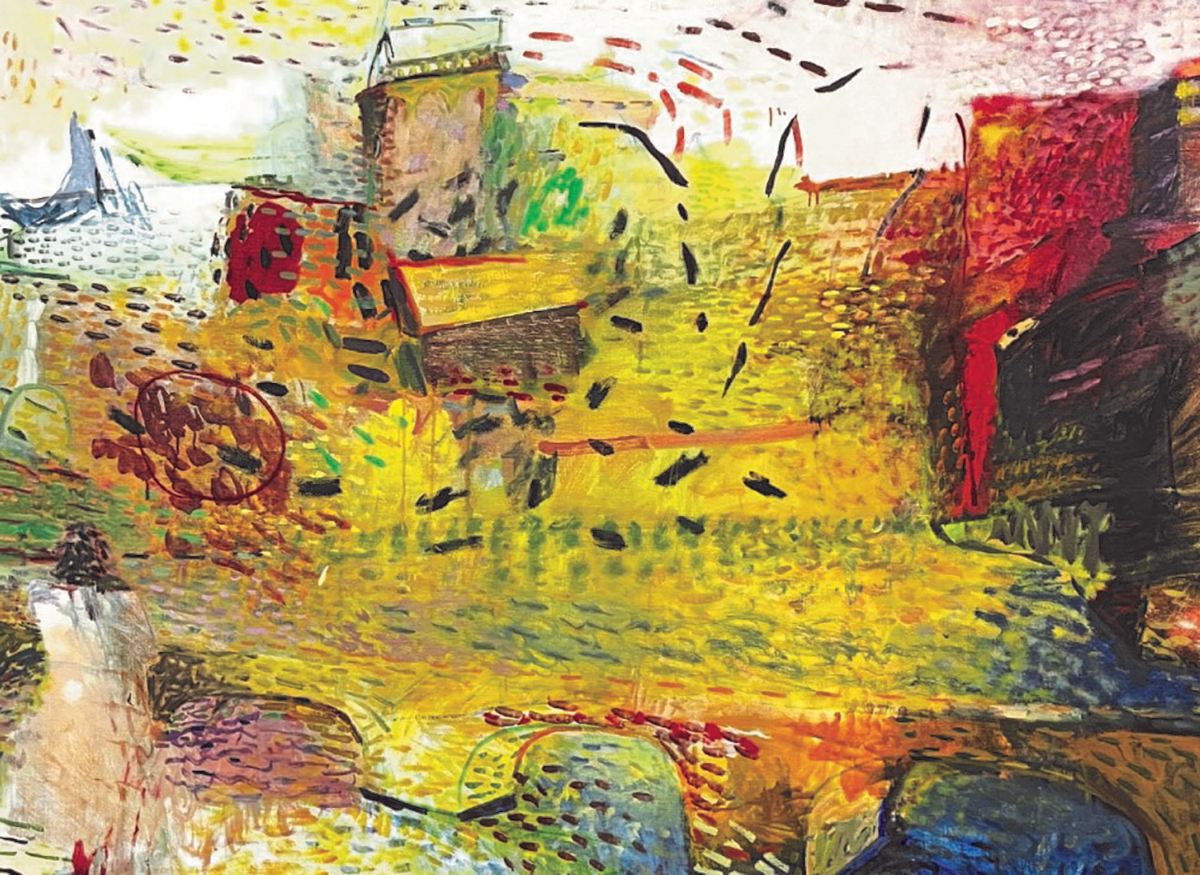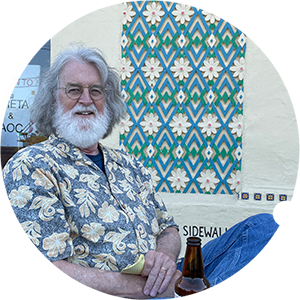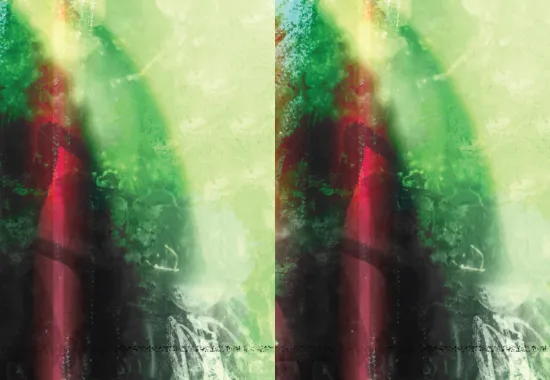Nonstop Flights: Review of The Flight from Meaning by Stephen Haven
I am one of those lucky people who have family and friends invested enough in my social well-being to take the time to point out my eccentricities. For instance, I still make my own yogurt, and though in this practice I have always stood alone in my crowd, I nonetheless enlisted those friends who attend yard sales to buy every yogurt maker they found. It took them several years, but I now have four extra ones stockpiled in my basement in the event that the one I have been using finally dies and leaves me bereft. I am prepared for survival.
I also do not care for Wordle, which Wikipedia tells us was played 4.8 billion times over the course of 2023. In this instance I am at the other end of the spectrum, refusing to engage with a phenomenon that is at once wildly popular, and would appear to be a natural draw for a poet such as myself. You like words, so the general argument runs, How can you not like Wordle? which of course is all about guessing the right word within six tries.

I do indeed ‘like’ words, but the stakes have to be right, and not just one word, but combinations of them in artistic array that prompt my curiosity, or stimulate my intelligence, or thrill me with their music, compel me with their imagery, and especially when all of this occurs at once. Stephen Haven’s new collection of poetry is just such an occasion, and we can start with the provocation itself of the title: The Flight from Meaning. There is bravery in preparing the reader to wonder from the outset why the poet would choose to flee from meaning, and simultaneously to raise the question about the directions this flight might take us. I think of one of James Tate’s early books, The Oblivion Ha Ha, in which the title similarly offers an overall philosophical stance regarding absurdity, a conceptual purchase from which to view the potential loss of meaning in the world, though in Haven’s case, humor is not part of the strategy.
For instance, his title poem is a reminiscence in which, during an innocent enough occasion on the beach, he abruptly drops the reader into the heart of his pervading theme. He and his ‘new love’ are strolling in a beach town after a storm, and notice a rainbow that prompts this following set of thoughts:
When the double rainbow shimmered in, we abandoned
The street musician, sat by the ocean-side park
Chewing taffy under those full arcs….
How fully we vanish into them, out of some
Primary edge, the temples of nothing that draw us in,
Light and air, nothing substantially there….
Out over the harbor our still capacity for wonder.
Haven is serious-minded, mature, meditative, and not overly inclined to give in to fantasy. A simple chance to see a rainbow elicits his immediate recognition that the wondrous event is a vacuous illusion: he tells us truthfully that nothing substantially is there. The beauty, the majesty of those towering arcs spanning across the heavens, the colored loveliness—all that draws the poet and his ‘new love’ to sit and admire the spectacle—are nothing more than quotidian sunlight accidentally passing through air containing water vapor. Those are the facts, the truth of the matter, and what he and his new love make of them is mere phenomenological romance—which is indeed the meaning from which people all try to flee: In the flight from meaning, no one fully escapes, the poet tells us, The mass of humanity neither innocent nor guilty…
Neither innocence nor guilt are actual, from Haven’s strict, ontological point of view, but are human constructs and as such are temporal, temporary, and relative to the cultural context in which they appear. Events have significance simply because people say they have it—and, of course, then change their minds, or enter into conflicts with other people who dispute what was said, or how to interpret it. It is not an easy thing to inventory the matters in one’s life that hold most personal value, and conclude both that their significance may fade away over time, and that their personal import is irrelevant from the point of view of Truth.
Nonetheless, Haven is careful to give honest weight to his convictions even when, as in The Absurd Silence of Nature’s Pauses, the circumstances involve the well-being of his son. As the poem begins, the poet offers a collage of images and details that represent what he remembers of his son’s dire illness when they were in Beijing together.
If only you are listening there is somewhere
An old refrigerator straining to beat the heat.
Footsteps from the floor above, the still settling
Of an ancient house. Wind chimes
From your neighbor’s yard, beauty and randomness
Wrapped like serpents around a Hippocratic staff.
He orients himself emotionally by his careful itemization of details in his familiar, domestic environment, which steady him until his anxiety—in the form of those Hippocratic serpents—breaks through the surface to reveal the medical circumstances that are the occasion of the poem itself:
When my son lay in a Beijing hospital
Bit by a bug, listening through 105 degrees…
In the hiss of that hospital room, two continents
Held their breaths, until he was his own
Wind instrument, tones, rests drawn from the air
That filled the gap between his teeth. Without measure
And without end, over slow coffee
The traffic slushes by, a plane passes overhead.
Here we notice the poem concluding with another collage of images, those random events occurring outside the hospital that are no more connected to his son’s fortunate recovery than were the noises of the refrigerator with which his memory began: slow coffee, the measureless streams of cars and trucks slushing by, air traffic far distant above him, and removed from the familial trauma. The poet’s journey from anxiety and fear regarding his son’s survival, to relief and joy, occurs within a larger material context oblivious to the emotional drama.
It is perhaps fair to wonder at this point if value may be found somehow in that human perspective, mutable as it might be. And indeed Haven seems to be pushing us toward that opinion, or at least encouraging us to raise that question. He presents momentous, consequential circumstances that display the extreme contrast between all that is humanly valued (his son’s life, for instance), and all that is inhuman and pointless (the measureless traffic slushing by). With this in mind, let me report that Haven not too long ago gave a poetry reading, during which the poet Deborah Gorlin noted in the conversation afterward that there is another legitimate interpretation of his book’s title: The Flight from Meaning can also be understood as a departure from one meaning to other meanings and valuations—in the way we might leave from Boston and fly to San Francisco. In this sense the flight is an imagined transit from one meaningful point of departure toward another new, creditable destination.
This observation is in fact a key thematic strategy in Haven’s book.
The poet can reorganize the trajectory of his imagination as less an escape from absurdity, and more a track toward humane merit and purpose, and a corollary valuation of the transient and evanescent. He notes that
Out of darkness the ear will lead us. You must be very quiet
To hear blind Milton chanting to his daughter in the space
Our century vacates. So the window of a single rose.
You sit there remembering your father reading
Sunday afternoons, a glass of sherry floating in snow,
Heifetz in Beethoven’s concerto, this wooden wind,
These insects slumbering through
Long gestations of some mind, conjured in quietude.
Equal, Always Equal, to the Inexpressible
Haven in his meditation chooses favored, personal moments in his pantheon of exquisite aesthetic meaning, and adds family connections between John Milton chanting his inspired nightly lines of Paradise Lost to his daughter, who then transcribes them each morning, and Haven’s own family relations with his father. If these are personal values, and are not shared by others who perhaps value Milton less highly—this is possible, after all—, or prefer Tool or Nirvana to Beethoven—well, that freedom to determine individual taste and merit is precisely the point of treasuring the evanescent and inexpressible. The nature of meaning will be individually determined, and broader valuations will need to be discussed in larger public contexts.
But one final, crucial point. One of the implications of a philosophy that treats temporal significations as only apparently real is a resulting lack of ethics among human ideals. Haven is indeed a cultured poet, with a beautiful craft, but he does not limit himself to personal conversations with and about those whom he loves. He is equally adept at entering a public discourse in which he confronts the social turns in this country toward violent intolerance and institutional cruelty. As of the very moment I write this sentence, we are in the throes of a new wave of ethnic persecution as targeted social groups are vilified, gathered up, and deported without due process. Haven has taken notice. In his long poem, Filthy Lucre, for example, he acknowledges both the role of the slave trade in establishing old money among proud white American families, and also his own family’s participation:
We always suspected
My mother’s love of her mythic
Southern gentility. Then in the digital
Head count of an 1830 Census
The “Schedule of Whole Persons
Within the Division allotted to…”
In thin pencil, our ancestors' names,
Jacob’s Canaan leading the way,
294 slaves.
The historical knowledge in the background renders all the more delicate the complexities of his very personal friendships with Black men among whom he grew up as boys in a blue collar industrial complex in upstate New York, and with friends he made at a local YMCA in Cleveland:
Al called me white boy, meant it kindly,
Asked me over for egg foo young,
A Cavs game on his flat screen TV.
Every house sported the same
One-car garage. Row after row
Tight brick two-stories. He cracked
The front door screen, watching for me.
It’s hard to say these moments, and others like them, are unimportant, not worth recognizing and remembering—even if there is a cold cosmic vacuum hovering in the intellectual background. The two men are loyal to each other over the years, despite both the terrible historical divide, and the different sides of the different cities they live in as adults. They watch out for each other, which I think is Haven’s ultimate point. This is what I walked away with, after reading his book. Ideas are simply insufficient to account for these enduring connections. Haven requires the particularity of relationships to provide perspective, color, and value, by which his poetic vision is completed.
Recommended
A Review of When We Were Gun: A Narrative Poetry Cycle by Deborah Schupack
A Review of Apostasies by Holli Carrell






